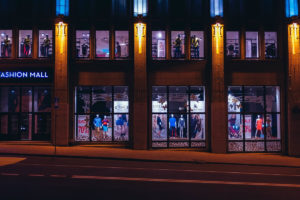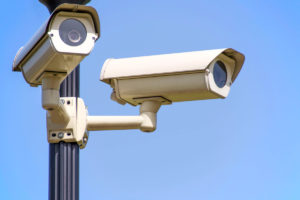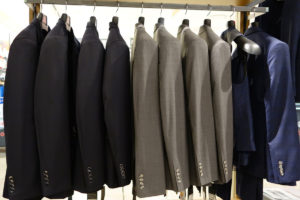 Okay we know that shoplifters are one of the lowest forms of life. Stealing from people is not noble or right in any situation. I believe that shoplifters are a strong competitor for the oldest profession in the world. After all, I bet a cave man was able to steal a rock from another before prostitution even existed and politicians didn’t even exist yet. Even though some in Congress seem to have been around much too long.
Okay we know that shoplifters are one of the lowest forms of life. Stealing from people is not noble or right in any situation. I believe that shoplifters are a strong competitor for the oldest profession in the world. After all, I bet a cave man was able to steal a rock from another before prostitution even existed and politicians didn’t even exist yet. Even though some in Congress seem to have been around much too long.
So if we can’t get rid of them, we might as well have a little fun with them. In the process make them very frustrated and uncomfortable. All the while your staff is being entertained. This provides a great break to the normal retail grind for your folks, ultimately sends the shoplifter packing with an empty bag and the best part of all saves you money. And let’s not forget this sends a signal to the shoplifting community to go elsewhere and leave your store alone.
So what’s the secret????? Customer Service! Once you know how to spot a shoplifter customer service them to death, overtly and openly. If you don’t know how to spot shoplifters even before they steal, contact us, we can teach you how to do that.
You see the one thing that all shoplifters need is privacy or at least the perception of it. If you or your staff is customer servicing them, they can’t do the dirty deed and they get the message. Typically they simply go elsewhere and don’t bother you further.
Entertainment is great but try to avoid getting the popcorn and 64 ounce drink out and watching. That would just be rude.
CC Intro:
I bet you never thought that shoplifters could be a form of in-store entertainment did you? Why not! These bottom feeders are not exactly the sharpest tools in the shed so let’s drive them crazy and have some fun at the same time. That is what our Feature Article is all about this month. ENJOY!!!!

 Have you ever noticed that when a convenience store robbery takes place the crook never demands all of the credit card slips? I have never heard of a bank robber pulling out a gun and yelling for the teller to give them all of the checks in the drawer. What is it the bad guys are always trying to get their hands on…CASH! While Loss Prevention departments do work on credit card and fraudulent check cases our bigger concern is cash theft and fraud. It has been my experience that in many incidents involving a stolen credit card or check, I have been able to work with bank investigators and police detectives to identify and in some cases resolve those crimes. In those situations there is usually a victim as well as a perpetrator of the crime. When it comes to cash loss cases it becomes another matter altogether, the victim is the store. While we may have video of the crime there may not be any other means of tying in additional information. Another issue with cash losses is that the stolen money cannot be tracked further. Stolen credit cards tend to leave a trail of locations where they are used which can lead to greater opportunities to pick up on additional evidence. The same can be true with fraudulent check writing cases. With a cash loss case, once it’s gone you don’t see it again, money is not traced.
Have you ever noticed that when a convenience store robbery takes place the crook never demands all of the credit card slips? I have never heard of a bank robber pulling out a gun and yelling for the teller to give them all of the checks in the drawer. What is it the bad guys are always trying to get their hands on…CASH! While Loss Prevention departments do work on credit card and fraudulent check cases our bigger concern is cash theft and fraud. It has been my experience that in many incidents involving a stolen credit card or check, I have been able to work with bank investigators and police detectives to identify and in some cases resolve those crimes. In those situations there is usually a victim as well as a perpetrator of the crime. When it comes to cash loss cases it becomes another matter altogether, the victim is the store. While we may have video of the crime there may not be any other means of tying in additional information. Another issue with cash losses is that the stolen money cannot be tracked further. Stolen credit cards tend to leave a trail of locations where they are used which can lead to greater opportunities to pick up on additional evidence. The same can be true with fraudulent check writing cases. With a cash loss case, once it’s gone you don’t see it again, money is not traced.


 Daylight savings time is over and for most of us in the U.S. (yes, there are a few exceptions) we have moved our clocks and groaned at the loss of a precious hour of sleep. We have to adjust and get used to the change and eventually we do. For our personal lives there isn’t a lot of impact, once we are used to it we do benefit from the additional daylight and get to enjoy more outdoor activity. The time change is useful as a reminder for changing batteries in smoke detectors. You may even use it as a point when you will start planning your summer vacations. For business owners daylight savings time can be a reminder that it is time to conduct a store physical security review. Time changes may not impact us much individually but for retailers there is an impact for the building, employees and your customers.
Daylight savings time is over and for most of us in the U.S. (yes, there are a few exceptions) we have moved our clocks and groaned at the loss of a precious hour of sleep. We have to adjust and get used to the change and eventually we do. For our personal lives there isn’t a lot of impact, once we are used to it we do benefit from the additional daylight and get to enjoy more outdoor activity. The time change is useful as a reminder for changing batteries in smoke detectors. You may even use it as a point when you will start planning your summer vacations. For business owners daylight savings time can be a reminder that it is time to conduct a store physical security review. Time changes may not impact us much individually but for retailers there is an impact for the building, employees and your customers. When do closed circuit television malfunctions occur? I’m sure you can guess, it is always at the point when you need it most. I can’t recall the number of instances when I had a cash shortage I needed to look for and when I attempted to pull video through the DVR the video was already dropped or the camera wasn’t functioning. I remember having to look for an image of a suspect in a shoplifting incident and the picture was too grainy to be of any use due to a dirty camera lens or dome. One slightly embarrassing situation that stands out in my mind involved robberies that were taking place behind our store. I had developed a great working relationship with our local police department and they knew the quality of our camera system. Investigators came to me seeking assistance with outdoor camera footage to try to identify the criminals conducting the robberies. I pulled up video of the date and time in question and much to my chagrin the camera had a great shot of the ground directly underneath it. A power surge had impacted the programming of the pan/tilt/zoom (PTZ) camera and placed it in a default position. I had not noticed the problem in a timely fashion and could not recall how long it was before I did catch the issue. The good news was I was able to re-program the camera and eventually we did provide footage of an incident a little later that led to an arrest.
When do closed circuit television malfunctions occur? I’m sure you can guess, it is always at the point when you need it most. I can’t recall the number of instances when I had a cash shortage I needed to look for and when I attempted to pull video through the DVR the video was already dropped or the camera wasn’t functioning. I remember having to look for an image of a suspect in a shoplifting incident and the picture was too grainy to be of any use due to a dirty camera lens or dome. One slightly embarrassing situation that stands out in my mind involved robberies that were taking place behind our store. I had developed a great working relationship with our local police department and they knew the quality of our camera system. Investigators came to me seeking assistance with outdoor camera footage to try to identify the criminals conducting the robberies. I pulled up video of the date and time in question and much to my chagrin the camera had a great shot of the ground directly underneath it. A power surge had impacted the programming of the pan/tilt/zoom (PTZ) camera and placed it in a default position. I had not noticed the problem in a timely fashion and could not recall how long it was before I did catch the issue. The good news was I was able to re-program the camera and eventually we did provide footage of an incident a little later that led to an arrest. When I was a Loss Prevention Manager we would catch a shoplifter or a dishonest employee and recover merchandise. Depending on the type of case we would sometimes hold the evidence for a few days until the court hearing other times it could be much longer. If a shoplifter refused to plead guilty or requested a jury trial cases could be held up for months if not longer. I had several cases that went on for more than a year. Felony shoplifting cases and juvenile cases in our jurisdiction often meant lengthy wait periods depending on caseloads in the court. I also recall at least one shoplifting case in which the lawyer for the defendant requested extensions three separate times hoping that I would not appear for the hearing and the case would be dropped. No dice, I showed up for each hearing and finally the lawyer entered a guilty plea. The problem with the lengthy cases was that we would have to hold the evidence until the cases were settled. In some situations the police department held the recovered merchandise, such as when they stopped the suspect after the suspect fled the store. When merchandise has to be held for long periods it is possible for it to sit in evidence and be forgotten about. For stores that are too small to have security or Loss Prevention Departments management may be storing that evidence and no one is thinking about following up on cases with their police department or court.
When I was a Loss Prevention Manager we would catch a shoplifter or a dishonest employee and recover merchandise. Depending on the type of case we would sometimes hold the evidence for a few days until the court hearing other times it could be much longer. If a shoplifter refused to plead guilty or requested a jury trial cases could be held up for months if not longer. I had several cases that went on for more than a year. Felony shoplifting cases and juvenile cases in our jurisdiction often meant lengthy wait periods depending on caseloads in the court. I also recall at least one shoplifting case in which the lawyer for the defendant requested extensions three separate times hoping that I would not appear for the hearing and the case would be dropped. No dice, I showed up for each hearing and finally the lawyer entered a guilty plea. The problem with the lengthy cases was that we would have to hold the evidence until the cases were settled. In some situations the police department held the recovered merchandise, such as when they stopped the suspect after the suspect fled the store. When merchandise has to be held for long periods it is possible for it to sit in evidence and be forgotten about. For stores that are too small to have security or Loss Prevention Departments management may be storing that evidence and no one is thinking about following up on cases with their police department or court.